As I said in my last blog, “unbranded organic searches” is the holy grail of marketing for many businesses. That’s people finding you through search, who have never heard of you. They are looking for what you do or sell or offer. Or the solution to the problem you solve.
There are many situations where PAID ads are also valuable, as an assist to your organic search efforts. Sometimes they are the best or even the only effective way of marketing online.
In the arena of paid online ads, Google is the 600-pound gorilla. There are other serious players, notably Facebook, but lots of others which may be useful or even vital depending on who you are marketing to and your exact situation – Yelp, LinkedIn, Bing, and so on.
There’s a lot to talk about, so in this blog, I’m going to limit myself to Google Ads.
Here’s the first thing to know. As the Romans used to say, “Caveat Emptor” – “Let the buyer beware.” It is very easy to waste money and get no results from Google Ads. So let’s see if I can provide you with some guidance. Even if you are hiring someone to do them for you, there are things you should know to get the most for your money.
WHEN GOOGLE ADS DON’T WORK
There are situations where you can be certain running Google Ads would be a mistake. If you are selling inexpensive items, it is unlikely paying for clicks will be cost-effective. If you have to pay more than 10 cents a click, and your profit per sale is $1, forget it. You’d have to sell 10% of the prospects clicking on your ad just to break even.
If no one is searching for what you got, because it is a brand-new concept, ads are useless. Before the smartphone was invented by Apple, no one was searching for smartphones, and they weren’t searching for what they do either.
There are industries – insurance for example – where clicks are very expensive (sometimes more than $100 per click). Unless you have a giant budget, forget it.
WHEN GOOGLE ADS ARE A NO BRAINER.
Here’s the reverse situation. If you are selling $30,000 items, Google Ads are almost a guaranteed winner. It doesn’t matter how much it costs to generate a lead – it will be a tiny fraction of your profit. We’ve seen situations where there were very few clicks to be bought (because it was a piece of advanced technology with a limited market). We had literally an unlimited budget, except we found it impossible to spend more than $300 a month. Nevertheless, that brought in leads worth $50,000 or more a month.
A somewhat different scene where it is impractical to reach your entire potential service area with organic search alone. See my last blog on this point. If you can deliver in Atlanta but can’t rank there, and you have at least a moderately priced product or service, you can use the same campaign and tactics as your organic search, just run the ads outside where your rankings carry you.
Finally, regardless of circumstances, it is almost always worthwhile to run ads as a research tool. You do this for a few months on a low budget. Ideally it brings you business and at a profit. But that’s not really what it is about. You are using the most effective research tool ever devised, to rapidly find out who your prospective customers are, what the most effective appeals to them are, what the best search terms are, and much more. You then apply it to your organic campaign, your website, and so on, to improve all your marketing efforts. Sometimes you find this paid campaign is profitable, and you continue it and increase your budget. Otherwise, you discontinue it when you’ve learned what you wanted to know.
GOOGLE ADS ARE MARKETING
Most people running Google Ads don’t know anything about basic marketing principles. They are technicians who know how to set up and run Google Ads and optimize them for best performance.
If they don’t understand what marketing is all about, it’s a bit like a deaf piano tuner. The results are likely to be unfortunate.
The purpose of marketing is to create want and sell something. If you can’t think about that, how are you going to write an effective ad? Google ads are ADS. They are advertising. Even if there are no pictures, the words have to make someone care enough to click.
Without that, people are often reduced to trying to offer lower prices than anyone else. Or trying to fool the prospective customer. Or they just flat out fail.
HOW TO WASTE MONEY
The first and best way to waste money with Google Ads is not to understand how they work. Here are a few gross examples from experience. I didn’t make these mistakes. I caught them looking at campaigns someone had been running this way, sometimes for years.
- Set a high daily budget you can’t really afford.
- Don’t start out with a small daily budget until you have the campaign fine-tuned.
- Use overly broad search terms, like “vacations” for someone renting beachfront vacation homes.
- Run your ads in places you don’t sell or deliver to. Happens all the time. I’ve seen ads running worldwide for a local contractor.
- Don’t know about “quality score” or don’t work hard to maximize your quality score (a high score makes your ads cheaper).
- Bid for #1 positions always. Rarely a good idea, even with an unlimited budget. With a limited budget, you want to buy the maximum number of valuable clicks for the amount your spending. Usually, your campaign will be doing best when it rarely shows at the top.
- Neglect the many tools to improve the efficiency of your campaigns, such as “negative keywords”, and “ad extensions.”
TEST
If you follow my blog, you’ve seen my frequent articles about testing. Testing is a vital part of a top-notch Google Ads campaign. Through regular testing, we’ve taken a campaign from 1% to over 10% click-through rate, decreasing their cost per click by 40% (while click costs industry-wide were rising) and got them tons more business.
How did we do it? It didn’t happen overnight. We always had two ads running at the same time, to see which worked better. When one was proven superior, we dropped the other and added a new “B” test ad.
We are always testing new keywords, landing pages, and more.
This alone often makes the difference between an unsuccessful campaign and one that is wildly successful.
WASTING CLICKS
You go to all the trouble to get someone to your website.
Don’t waste them.
Sometimes, if a website is awful, we tell clients not to spend their money on ads until the site is redone or improved.
The good news is Google Analytics and other tools provide feedback that points you straight at what is right and what is wrong with your site.
A vital part of any Ads Campaign is using these metrics to guide improvements to the website.
It is an incredible force multiplier to improve the conversion rate of your website, making your ads effectively cheaper and more profitable.
DON’T LET THEM PULL THE WOOL OVER YOUR EYES
This article barely scratches the surface. I am NOT appealing to you to run your own ads. Google Ads is complex. Usually, your best move is to find someone with a good track record to manage ads for you.
What you have to do is look at the big topline numbers, so you know if they are doing a good job or not. Know enough to be able to look at the numbers, and see whether you are being served well or not.
There are good people out there. There are also many who are incompetent or just plain crooks.
Don’t listen to the smooth talk. Let the numbers guide you.
Good luck.









